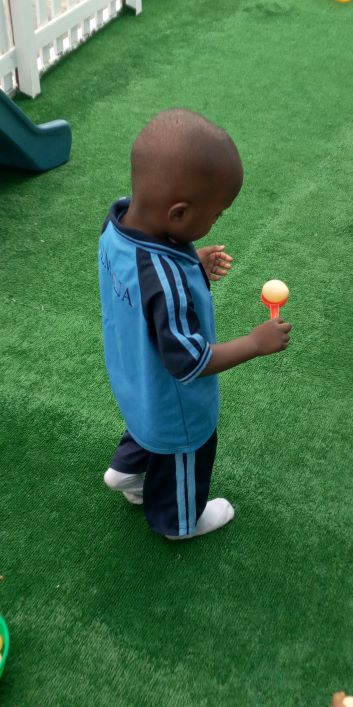Early years foundation stage (EYFS)
The Early  Childhood program consists of four distinct groupings: crèche 1 (4 months to 12 months), crèche 2 (18 months to 2 years), and Preschool (2 to 3 years), Nursery (4 years to 5 years).
Childhood program consists of four distinct groupings: crèche 1 (4 months to 12 months), crèche 2 (18 months to 2 years), and Preschool (2 to 3 years), Nursery (4 years to 5 years).
Our Early Childhood Program is based upon the following beliefs:
- Children learn best doing (hands-on activities).
- Children benefit from a variety of indoor/outdoor, structured/unstructured, developmentally appropriate educational activities that allow each child to learn at their own pace.
- For children, play is work and is a foundational element to their learning.
- Each child is unique; therefore teachers respect each child’s special qualities.
- ment of the whole child is highly valued.
The proper foundation of learning in these beginning years is important to the continuous growth and unlocking of a child’s potential. The prepared environment encourages spontaneous activity in education, the process which the child struggles to unfold his own highest and best intellectual, emotional, and social development through choice of work, concentration and focus, independence and collaboration within a self-managing classroom. The classroom is dynamic in that children are encouraged to move around to make choices of activity, as opposed to desk-bound activities. Our curriculum is designed to address the psychological characteristics of children in the second plane of development, which include a stronger capability of effort and concentration, an immense desire for knowledge, a stronger need to satisfy intellectual curiosity, development of the powers of imagination, and heightened social exploration.
The areas of development around which our curriculum is organized are as follows:
Social: to help children feel comfortable in school, trust their new environment, make friends, and feel they are a part of the group
Emotional: to help children experience pride and self-confidence, develop independence and self-control, and have a positive attitude toward learning
Cognitive: to help children become confident learners letting them try out their own ideas and experience success, and helping them acquire learning skills such as the ability to solve problems, ask questions, and use words to describe their ideas, observations, and feelings
Physical: to help children increase their fine and gross motor skills and feel confident about what their bodies can do
Spiritual: to help children develop a positive feeling about Allah and who they are as Muslims.